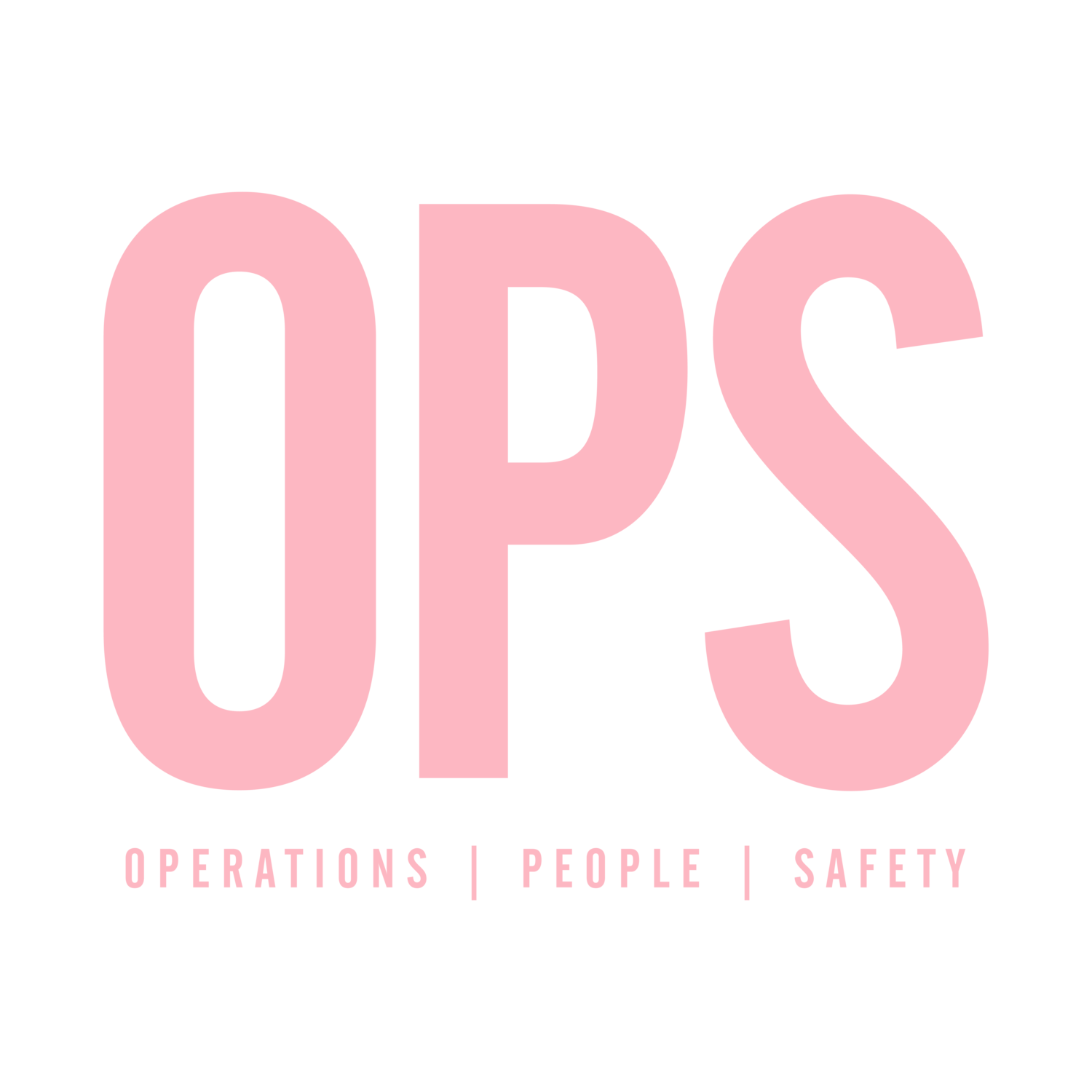‘Sustainability isn’t a luxury or a fringe movement: it’s an absolute necessity’
Key insights from Sarah Tew, Account Director at We Are OPS and Sustainability Lead across We Group
At We Group, we are aware of the urgent need to respond to the climate and biodiversity crisis, and recognise the environmental, social, and economic impacts on our business. We are passionate about safeguarding the future of live events in urban spaces and ensuring our events have a positive legacy.
I lead on environmental sustainability at We Group and I am committed to establishing a sustainable business model which ensures we can continue to deliver world-class events and experiences for many years to come. I recently joined the Vision: 2025 Steering Group and am delighted to be part of the movement in shaping climate action across the live events industry.
This year, we’ve embedded sustainability and accountability as new company-wide aspirational values. I delivered the first company-wide sustainability training with support from Chris Johnson of Vision: 2025 to help establish a base level carbon literacy, and encourage team members to take action. Further to this, we have developed new resources including briefing documents for power, waste and water suppliers, as well as a new Sustainability Policy setting out our approach and priorities.
Here are some key insights for event professionals looking to make the necessary changes.
How is the industry changing, and what resources are out there to support event organisers in producing more sustainable events?
Over the last 12 months we’ve seen increasing pressure from Local Authorities, who are insisting that events meet minimum sustainability standards and are asking event organisers to monitor and report on sustainability performance.
In parallel, we have also seen the industry come together and begin to develop our own national resources and guidance, to advance sustainable events and set our own minimum standards for best practice.
First, we saw the launch the new Environmental Sustainability Chapter within the Purple Guide. The Chapter gives an overview on best practice for outdoor events and is the first ever national guidance for sustainability within events.
We have also seen Vision 2025 and Julie’s Bicycle launch a 12 month pilot with 10 local authorities to test how the Green Events Code of Practice (GECOP) can embed sustainability within local authority processes and ensure consistency of requirements.
Vision 2025 have an amazing array of resources, guides and information that are free to access and definitely worth checking out. This year the team launched a ‘Sustainable Materials & Waste Management Toolkit for Festivals’ which offers practical advice on guidance on how to design waste out of the festival and how to ensure your waste management contractors are appropriately disposing of waste.
Further to this, Future Festival Tools is an EU-funded pan-European project that concluded in April 2023. The organisations has now released a set of free-to-use tools including a Self-Assessment Tool, case studies and an e-learner course on sustainability at events.
Are there any new regulations event organisers should be aware of?
Some new regulations for waste were released towards the end of last year. This included changes to the classification of upholstered domestic seating waste, which must now be disposed of separately from any other materials. Upholstered domestic seating, especially vintage, is commonly used on festival and event sites, but often contains Persistent Organic Pollutants (POPs). Events should be aware that if they are required to dispose of these items following an event, there may be increased costs involved.
In October 2023, the UK Government introduced a ban on the supply of single-use plastic plates, cutlery, balloon sticks, expanded and extruded polystyrene food and drinks containers.
All waste management contractors must dispose of waste transparently and responsibility. To ensure you are working with a reputable contractor, make sure to request and review their waste management licence. Once they have completed the collection and disposal, request copies of all Waste Transfer Notes and Weighbridge tickets. Check out the new guide by Vision2025 for further information, tools and resources.
What are some of the key challenges that we should be mindful of this year?
Extreme weather
As the climate changes, extreme weather events are becoming ever more frequent and are impacting health & safety at our events. Last year, we passed the 1.5 degree global average temperature increase 10 years ahead of schedule and we were required to temporarily pause our shows or delay opening on seven occasions due to lightning or other extreme weather events. We were also required to adapt our working hours during the build and break at two of our events to protect staff, crew and contractors from the extreme heat.
As event organisers, we should build in a contingency for any changes to production schedules that may result from extreme weather events occurring during the build and break periods. We will need more contingency plans, but this leads to additional budget.
Considering emergency plans and how we respond to extreme weather events is also hugely important, there can be serious cost implications and reputational damage if extreme weather events occur and measures are not in place to respond
Sustainability and Accessibility
As we aim to create a more sustainable, equitable and just industry, we must ensure that we are taking everyone with us. To do this, we must consider sustainability and accessibility together ensuring that solutions we find for one do not undermine progress for the other.
Electronic vapes
Electronic vapes are increasingly used by festival goers and are challenging to dispose of due to their contents consisting of lithium batteries, electronic parts and often nicotine remnants. As assist with their disposal and avoid contaminating other waste streams
Highlights from GEI16
Last month, we attended the GEI16 Conference hosted by A Greener Future. It was an inspiring and progressive day, celebrating achievements with a focus on progress and action.
Heat is On: Extreme Weather and Live Music’
I started the day by joining the seminar hosted by Jamal Chalabi and Met Office Meteorologist Professor Richard Betts. They discussed how the climate is changing and what we can expect in years to come. The key takeaway from this session was the need to adapt to the new climate through improved advance planning for extreme weather events.
The World’s First Carbon-Removed Gig – The 1975 at the 02 Arena
This seminar focused on the important role that artists play through inspiring and leading change. During this event, The 1975 collaborated with A Greener Future and CUR8 to reduce and remove carbon emissions. While the main priority should always be looking at ways to reduce carbon emissions, there is too much carbon in the atmosphere already, and even if we stop putting more in, we still have to take some out. There are, however, issues with affordability and scalability of carbon removal, which were highlighted in the talk.
No Climate Action Without Us
As we transition to a more sustainable industry, we must ensure that the solutions we put in place don’t leave anyone behind. Too often, sustainable solutions can oppose accessible solutions. This seminar explored the practical ways that event organisers can turn this around and instead ensure that sustainability supports and advances accessibility.
AIE wanted to open discussions around accessibility and sustainability “to understand the barriers and opportunities for disabled people engaging with sustainability initiatives at live events and festivals.” To do this, they created a public survey and received responses from 107 people who self-identified as disabled, including audience members, volunteers, artists and events professionals.
The findings of the survey are outlined in detail in the No Climate Action Without Us Toolkit, but in summary, the results showed that 46% of respondents “felt excluded from participating in environmental efforts at live events and festivals” and 34% “felt environmental solutions were not easy to navigate and did not meet their needs”. Some of the key areas to consider included:
- Ensuring we provide accessible water points that everyone can access
- Ensuring viewing platforms have appropriate waste management and sanitary facilities
- Considering the impact of dietary campaigns for those with specific food requirements
- Considering the impact of busy and unfamiliar spaces with shared transport options
- Providing access to parking
Overall
We require a collective effort from everyone involved: event organisers, production agencies, promoters, artists, brands, suppliers and audiences. Sustainability isn’t a luxury or a fringe movement, it’s an absolute necessity and we all have a duty to drive change forwards through our work and the decisions we make. Through creating new standards and setting best practice, we can support the industry to advance with a clear route. By encouraging innovation, creative thinking and collaboration, we can continue to work towards solutions and avoid complacency.

